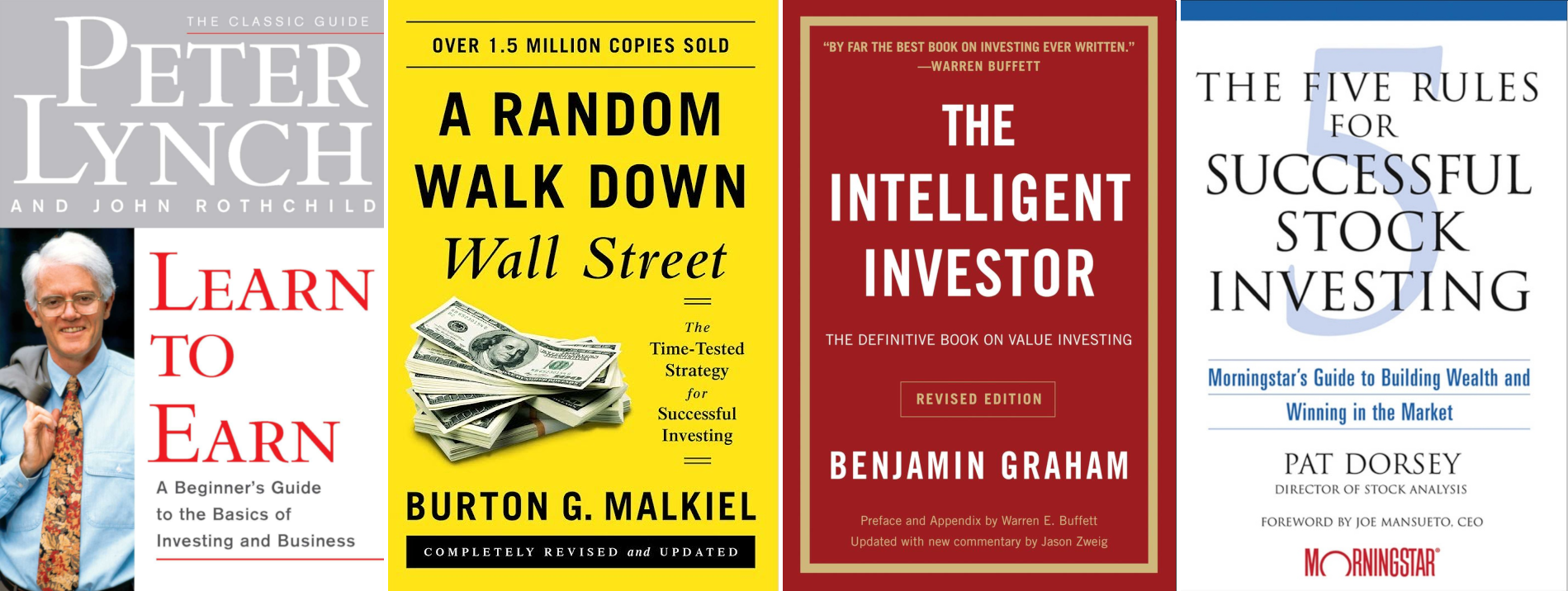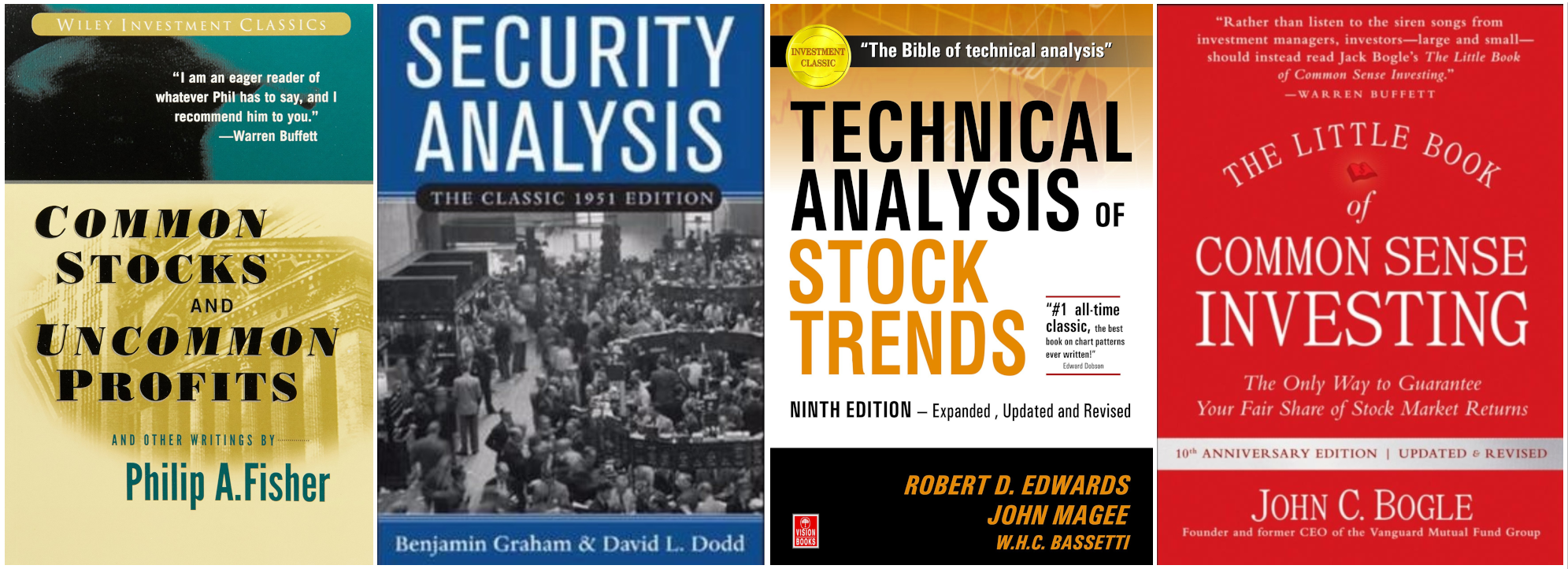The 8 Books Every Aspiring Investor Should Read
Inside Investing | Nov 08, 2018 10:23AM ET
No one is born a stock investor, and even those with the inclination and talent won’t succeed in the long term without understanding how the market works, and what “homework” you need to do before you buy your first share.
Investing in stocks sounds like a simple enough way to make money - you pay for a stock you believe will increase in value, wait for it to go up, then sell it for a profit. But how do you decide what company you want to invest in? After all, when you buy a company’s stock - you’re investing in the company’s current value and potential value.
Investing in the “Big Boys” can feel like a safe bet, but no one company is immune to market fluctuations, and investing in the more “stable” companies will often mean lower yield, and investing in more volatile companies means taking on a higher risk.
How do you go about analyzing a company to decide whether or not you should invest in it? Maybe you’re thinking of investing in an index instead? What does it mean and why should you?
You can pick up a book, but there are thousands upon thousands of books on each topic, and how do you know which book to start with?
Luckily for you, we’ve got a great list to start you off on your journey into the world of investing.

The Basics
Let’s begin with 2 books that’ll help you decide on what investing path you should consider.
The first book is Peter Lynch’s . The book will teach you all the basics of how capitalism works, in relation to your personal finance and investing. Most investors don’t really understand how the stock market works, and that’s because even the basics aren’t taught in school, but in Learn to Earn you’ll see that there are investment opportunities everywhere!
The second book you’ll want to pick up is by Burton G. Malkiel. Ask very well-read investor and they’ll tell you that it’s a must-read! By guiding you through the dot-com crash, Malkiel gives you a highly informative guide to managing your own investment portfolio (or at least understand what your broker is doing) confidently.
The Fundamentals of Analysis
Now that you have a good understanding of the basics, you’ll want to learn what and how to analyze potential investments before you put your money down.
You’ll want to start with what is considered to be the Bible of investing - , by Benjamin Graham. Originally published in 1949, this book still holds true to today’s markets, by teaching you Graham’s philosophy, called “value investing”, which helps you avoid rookie mistakes and teaches you how to build investment strategies. This is definitely a must-read!
The next 2 books you’ll want to read are Pat Dorsey’s .
Both books teach you timeless investing strategies that have been in use for decades and still hold true.
Finally, you’ll want to get another of Graham’s books - . Dating back to 1934, Graham’s work seems to be timeless, giving you strategies for individual success, as well as advice for corporations on how to present shareholders with value and transparency.

Technical Analysis
Now, you can take your first plunge into the world of technical analysis. One of the best ways to start is by reading by Robert D. Edwards and John Magee. This is the mother and father of interpreting investors and markets’ predictability. It is the first book of its kind that taught its readers how to still turn a profit regardless of how the market was doing.
Index Funds
Last but definitely not least, is by John C. Bogle. One of Warren Buffett’s most recommended reading pieces, as it explains what an index is, how it works, and why it’s one of the best types of investments. Bogle is one of the industry’s legendary investors, and in his book he imparts with practical advice and in-depth insights into index investing. Best of all, the book is an easy read and will teach you that often, the path to wealth is slow and steady, and based on common sense.

Trading in financial instruments and/or cryptocurrencies involves high risks including the risk of losing some, or all, of your investment amount, and may not be suitable for all investors. Prices of cryptocurrencies are extremely volatile and may be affected by external factors such as financial, regulatory or political events. Trading on margin increases the financial risks.
Before deciding to trade in financial instrument or cryptocurrencies you should be fully informed of the risks and costs associated with trading the financial markets, carefully consider your investment objectives, level of experience, and risk appetite, and seek professional advice where needed.
Fusion Media would like to remind you that the data contained in this website is not necessarily real-time nor accurate. The data and prices on the website are not necessarily provided by any market or exchange, but may be provided by market makers, and so prices may not be accurate and may differ from the actual price at any given market, meaning prices are indicative and not appropriate for trading purposes. Fusion Media and any provider of the data contained in this website will not accept liability for any loss or damage as a result of your trading, or your reliance on the information contained within this website.
It is prohibited to use, store, reproduce, display, modify, transmit or distribute the data contained in this website without the explicit prior written permission of Fusion Media and/or the data provider. All intellectual property rights are reserved by the providers and/or the exchange providing the data contained in this website.
Fusion Media may be compensated by the advertisers that appear on the website, based on your interaction with the advertisements or advertisers.